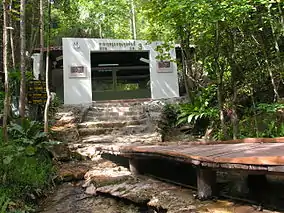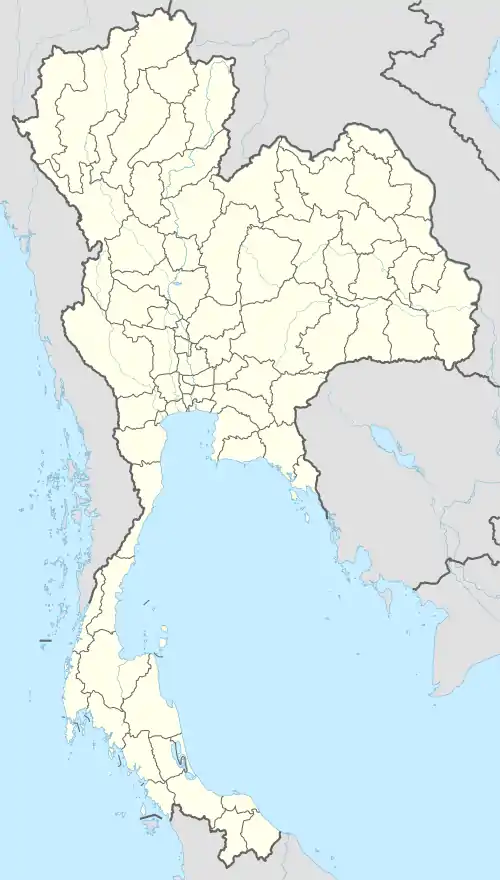Phu Wiang National Park
Phu Wiang National Park (PWNP) is in Khon Kaen Province, northeastern Thailand, covering the area of the Phu Wiang Mountains.[1] It is best known for its numerous dinosaur bone paleontological sites,[2] The park is one of the world's largest dinosaur graveyards.[3] In 1996, the remains of Siamotyrannus isanensis, a new family of carnivorous thunder lizards, were unearthed in the park.
| Phu Wiang National Park | |
|---|---|
| อุทยานแห่งชาติภูเวียง | |
IUCN category II (national park) | |
 PWNP Dinosaur Site 3 | |
 Location within Thailand | |
| Location | Thailand |
| Nearest city | Khon Kaen |
| Coordinates | 16°40′42″N 102°21′13″E |
| Area | 325 km² |
| Established | 1965 |
The Phu Wiang Dinosaur Museum in the park displays many of the park's finds. The park, measuring 325 square kilometres (125 sq mi) in size, is approximately 85 kilometres (53 mi) northwest of Khon Kaen. The area is characterized by a central plain and the low hills of the western Phu Phan Mountains.[3]
Fauna
Bird species include Black-crested bulbul, Lineated barbet, National bird of Thailand Siamese fireback, Eurasian jay, Common flameback, Green-billed malkoha, Rufescent prinia and Shikra.[4]:122–125
There are no large animals but there are small ones include Slow loris, Masked palm civet, Lesser mouse deer, barking deer, Himalayan porcupine, Fishing cat, Large Indian civet and Small Indian civet.[4]:124–125
References
- "Phu Wiang National Park". Department of National Parks (DNP). Archived from the original on 2010-01-23. Retrieved 11 May 2019.
- Spooner, Andrew; Borrowman, Hana; Baldwin, William (February 1, 2007). Footprint Thailand. Footprint Travel Guides. pp. 704–. ISBN 978-1-904777-94-6. Retrieved October 1, 2011.
- Eliot, Joshua; Bickersteth, Jane (March 13, 2003). Thailand handbook. Footprint Travel Guides. pp. 330–. ISBN 978-1-903471-54-8. Retrieved October 1, 2011.
- Elliot, Stephan; Cubitt, Gerald (2001). THE NATIONAL PARKS and other Wild Places of Thailand. New Holland Publishers (UK) Ltd. ISBN 9781859748862.